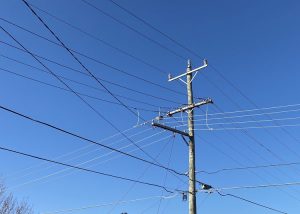A push to develop Australia’s gas resources could jeopardise global efforts keep global warming to safe levels, eating up more than a quarter of the world’s remaining carbon budget, a new report has suggested.
The analysis, which was undertaken by The Australia Institute, and commissioned by the Australian Conservation Foundation, found that Australia’s pipeline of gas projects could use up as much as 28 per cent of the global carbon budget needed to keep global warming below 1.5 degrees.
The report, titled Weapons of Gas Destruction, found that there were up to 22 new gas project proposals underdevelopment in Australia with total production capacity of almost 3,400 petajoules, which is almost one and a half times more than Australia’s current total gas production, most of which is already exported offshore.
The two groups fear that a push to expand Australia’s gas industry could see the level of greenhouse gas emissions effectively exported by Australia surge. Australia already ranks as one of the world’s largest gas exporters, and the development of the 22 project pipeline could emit up to three times the annual world emissions.
Such is the extent of the gas resources underdevelopment, that if extracted and burnt, it would amount to more than double the historical emissions of fossil fuel giants Chevron, Exxon, BHP and Rio Tinto put together.
“Despite calls for decarbonisation be central to the economic recovery from the coronavirus pandemic, the Australia government is proposing policies and subsidies for what it calls a “gas fired recovery”. From an economic and employment perspective, this makes little sense,” the report says.
“There are many low cost ways to reduce gas consumption, and the industry, despite its size, employs few Australians. Expanding fossil gas production also threatens to release large amounts of greenhouse gases.”
The Australian Conservation Foundation said that if Australia continues to pursue the development of its fossil gas resources, that it could put global efforts to limit global warming to safe levels at risk.
“Gas is directly contributing to global warming and unleashing the pollution from Australia’s full gas reserves would make it almost impossible for the world to meet Paris Agreement goals,” CEO of the Australian Conservation Foundation, Kelly O’Shanassy, said.
“For the first time the climate pollution from Australia’s dangerous pipeline of new gas projects has been quantified in this report.”
“The COVID pandemic’s massive disruption to our industries and jobs has deeply upset Australians, but it won’t compare to the economic disruption we will experience if our governments back dirty fossil fuels like gas over clean, renewable energy and technology,” O’Shanassy added.
TAI said the report shows that gas cannot be considered a suitable transition fuel, and that relying on gas to either boost the Australian economy or reduce emissions would have fraught consequences.
Proposed projects include the Santos Narrabri gas project, currently being considered by NSW planning authorities, as well as massive new developments across Western Australia, Queensland and the Northern Territory.
Woodside’s Browse and NWS extension project, proposed to be built off the Western Australian coast, is the largest project on the list identified by the Australia Institute, and could have an annual production capacity equivalent to 653 petajoules, dwarfing the Narrabri gas project which is targeting less than 80 petajoules each year.
“Our research shows fossil gas is not a transition fuel, it is central to the problem in the fight to address climate change,” the Australia Institute’s climate and energy program director Richie Merzian said.
“When the scale and potential damage of Australia’s gas resources is fully understood, it is hard for Australian policymakers to justify a so-called ‘gas-fired’ recovery. Angus Taylor cannot do justice to both his portfolios of Energy and Emissions Reductions if he backs expanding Australia’s gas industry in his forthcoming Technology Roadmap.”
“Gas is a high-pollution industry that won’t create jobs while unleashing triple the world’s annual emissions into the atmosphere. To say it is ‘lose-lose’ is an understatement,” Merzian added.
The gas industry has used the Covid-19 pandemic has an opportunity to lobby the Morrison government for investment support by suggesting that if the government were to underwrite the development of new gas resources and infrastructure, that lower gas prices and high economic benefits would flow.
However, a recent review of gas markets completed by the ACCC found that the Australian gas market was largely “dysfunctional“, exhibiting a perverse outcome that while most of Australia’s gas is sent offshore for sale in export markets, Australian domestic users were paying substantially higher than the international gas price.






